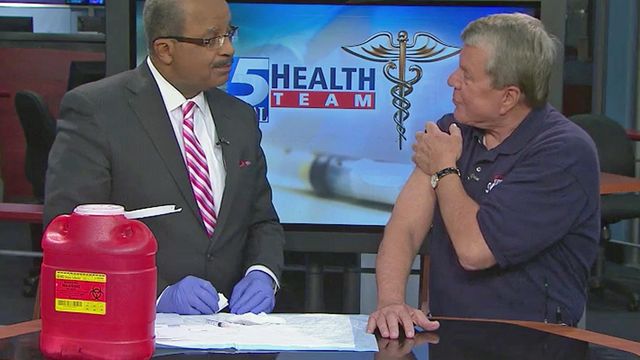State reports first flu deaths of season
The state Department of Health and Human Services said Tuesday that three people have died from the flu, marking the first deaths of the annual flu season.
Posted — UpdatedThe patients, all middle-age adults with underlying medical conditions, were from eastern North Carolina, the Triad region and the Charlotte area. All three died during the past two weeks after testing positive for Influenza A, one of the main types of flu responsible for seasonal flu epidemics each year.
"We hope that these tragic cases will help alert other people to the risks associated with contracting flu," Dr. Robin Gary Cummings, acting state health director, said in a statement.
Cases of flu have been relatively low in North Carolina so far this season but are beginning to trend upward, public health officials said. Flu season typically peaks during January and February.
Complications from flu can be particularly dangerous for high-risk groups, including infants and toddlers under age 2, pregnant women and people with chronic medical conditions, such as asthma, diabetes, heart disease or immune system problems.
"Anyone in a high-risk group who gets the flu should see a doctor right away so they can receive treatment with an antiviral drug," Cummings said. "Early treatment with an antiviral drug can mean the difference between a mild illness and a very serious illness."
Flu vaccination is the most effective treatment against the flu. The immunization takes about two weeks to become effective, and the vaccine is widely available and protects against various strains of flu circulating this year, including H1N1.
Public health officials also encourage people to use the following precautions to protect against the spread of flu and other viruses:
- Cover coughs and sneezes with a tissue and then discard the tissue promptly.
- Wash hands frequently, preferably with soap and water or an approved hand sanitizer.
- Stay home when you are sick until you are fever free for at least 24 hours.
• Credits
Copyright 2024 by Capitol Broadcasting Company. All rights reserved. This material may not be published, broadcast, rewritten or redistributed.






